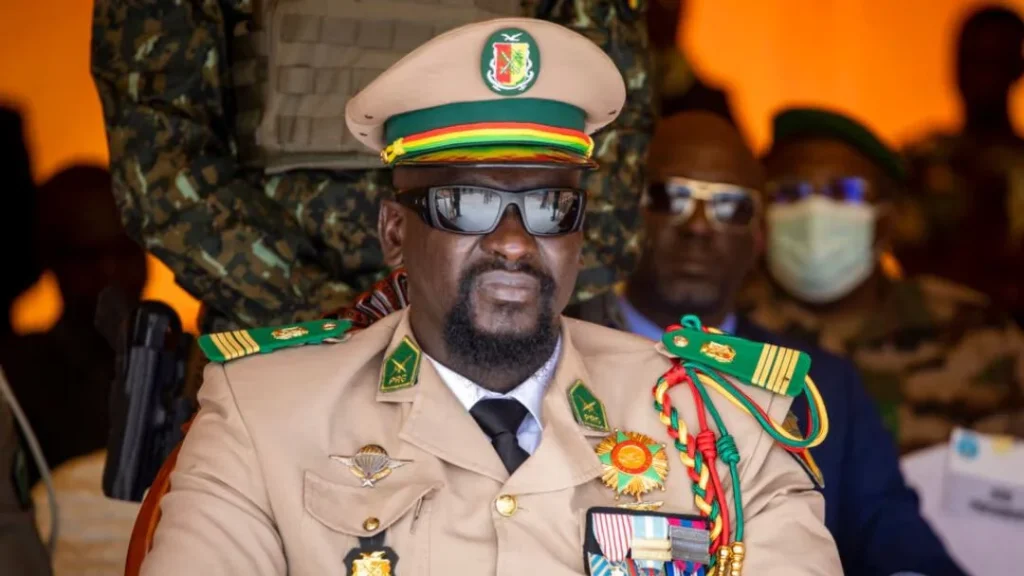On April 30, 2022, Colonel Mamady Doumbouya, leader of Guinea’s military junta, announced a 39-month transitional period before returning to civilian rule, as stated in a televised speech. “From all consultations at all levels, the median proposal that emerged is a transition of 39 months,” Doumbouya said, noting that the National Transition Council (CNT), an 80-member interim parliament, would review the proposal. The announcement followed an “inclusive consultation framework” in April, boycotted by major political groups like the National Front for the Defense of the Constitution (FNDC), which condemned the plan as “inadmissible, inconceivable, and unacceptable” due to its lack of legal basis.
ECOWAS Deadline and Sanctions
The Economic Community of West African States (ECOWAS) had set April 25, 2022, as a deadline for Guinea to propose an “acceptable” transition timetable, threatening expanded economic and financial sanctions if unmet. The junta ignored the deadline, requesting more time for consultations, prompting ECOWAS to maintain sanctions on junta leaders, including travel bans, but not broader economic measures as imposed on Mali. “ECOWAS has called for an acceptable timeline for a return to civilian rule,” noted France 24, highlighting regional concerns over democratic backsliding in West Africa following coups in Mali (2020, 2021), Guinea (2021), and Burkina Faso (January 2022).
Context of the 2021 Coup
Doumbouya, a former French legionnaire, led the September 5, 2021, coup that ousted President Alpha Conde, who faced widespread opposition after amending the constitution in 2020 for a third term. Initially welcomed by many Guineans, the junta’s prolonged rule has fueled growing discontent in the nation of 13 million. ECOWAS initially demanded a six-month transition, a timeline the junta dismissed. “There is growing discontent against the junta,” Voice of America reported, citing public frustration over delayed elections and human rights concerns, including the detention of activists like Oumar Sylla and Mamadou Billo Bah in 2024.
Regional Coup Wave and ECOWAS Challenges
Guinea’s coup followed Mali’s military takeovers and preceded Burkina Faso’s, raising alarms about a “coup belt” in West Africa. ECOWAS imposed harsh sanctions on Mali, including border closures and asset freezes, for proposing a transition until 2025, and gave Mali 12-16 months for elections. Burkina Faso’s junta, citing a jihadist insurgency, proposed a three-year transition, avoiding sanctions so far. Guinea’s 39-month timeline, later adjusted to 36 months by the CNT in May 2022, was reduced to 24 months in October 2022 after ECOWAS negotiations, though progress stalled. “The junta has shown little sign of moving to organise a vote,” Reuters noted in 2023, reflecting ongoing delays.
Ongoing Repression and Doubts Over Transition
By August 2025, doubts persisted about Doumbouya’s commitment to civilian rule. The junta dissolved over 50 political parties and revoked media licenses in 2024, while activists faced arrests and alleged torture, per Human Rights Watch. A proposed constitutional referendum in September 2025, termed a “refoundation” rather than a transition, raised fears Doumbouya aims to entrench power, with the draft constitution granting junta immunity. “Doumbouya seized Guinea in an illegal coup and is now clinging to power,” an X post claimed, reflecting public skepticism. Economic strains, including 10.7% acute food insecurity in 2022, and corruption scandals, like $400 million in missing gold, further eroded trust. The junta’s alignment with Rwanda’s Paul Kagame and muted criticism of France signal strategic shifts, but the stalled transition risks prolonging Guinea’s instability.






